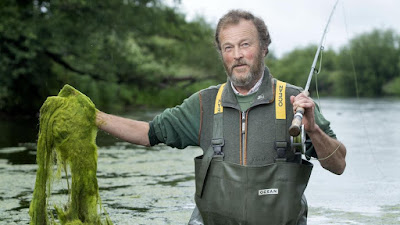Research on food sensitivities often centres on eggs, when it may be additives used in poultry feed rather than a lack of tolerance for eggs themselves.
There are widespread problems with colouring additives in poultry feed.
All major egg producers and many small ones - even those which claim to be free range and organic - use colouring additives in the feed they give their hens. The use is completely unnecessary in a genuine free range flock, as hens running on quality pasture and at low stocking densities obtain enough carotenoids from the green feed in the paddock to maintain good yolk colour. The colour will vary – depending on the time of year and what each hen has been eating – but many egg producers want to con consumers by using additives to provide consistent, bright yolk colour. Many of those additives are synthetic - adding to the chemical cocktail mix in food. But even those which are claimed to be 'natural' are manufactured in factories – often in China. What the manufacturers mean by using the word 'natural' is that the additives may be derived from natural products but are processed and concentrated into a powder or liquid. Three of the most widely used egg yolk pigmenters are:
Canthaxanin or Canthaxanthin which appears to be an unsafe additive. It can cause diarrhoea, nausea, stomach cramps, dry and itchy skin, hives, orange or red body secretions, and other side effects. Do not use canthaxanthin if you experience breathing problems; tightness in the chest; swelling of the mouth, tongue or throat; a skin rash or hives; you are pregnant or breast-feeding or you are allergic to vitamin A or carotenoids.
Capsicum Allergic reactions to capsicum may occur. Stop eating eggs with capsicum-based colouring and seek emergency medical attention if you experience symptoms of a serious allergic reaction including difficulty breathing; closing of the throat; swelling of the lips, tongue, or face; or hives. Other less serious side effects have also been reported. Talk to your doctor, pharmacist, or health care provider if you experience upset stomach; heartburn; diarrhoea; migraine attacks or burning sensation in the mouth or throat. Use of Capsicum is not recommended if you are pregnant. If you are or will be breast-feeding while eating food containing Capsicum, check with your doctor or pharmacist to discuss the risks to your baby. Capsicum colourings can bring on anaphylactic shock. See details about which plants generate these problems on this site at the University of Maryland: http://www.umm.edu/altmed/articles/anaphylaxis-000008.htm
Marigold Some people experience breathing problems, tightness in the chest, swelling of the mouth, tongue or throat. A skin rash or hives may occur.
More details on our website:
www.freeranger.com.au



 At the time we were developing the farm, it was great that we had an array of tractors and equipment to test as I was editing Power Farming magazine. In the future I would like to get back into writing about tractors and farm machinery and publishing reports on YouTube and a small farm machinery facebook group. All that's needed is for manufacturers to provide machinery for review on the farm. Our current farm workhorses are a kubotaL185DT and a Jinma 354.It will be great to test a small dozer or tracked tractor as well as mowers, power harrows and even a modern baler.
At the time we were developing the farm, it was great that we had an array of tractors and equipment to test as I was editing Power Farming magazine. In the future I would like to get back into writing about tractors and farm machinery and publishing reports on YouTube and a small farm machinery facebook group. All that's needed is for manufacturers to provide machinery for review on the farm. Our current farm workhorses are a kubotaL185DT and a Jinma 354.It will be great to test a small dozer or tracked tractor as well as mowers, power harrows and even a modern baler.
